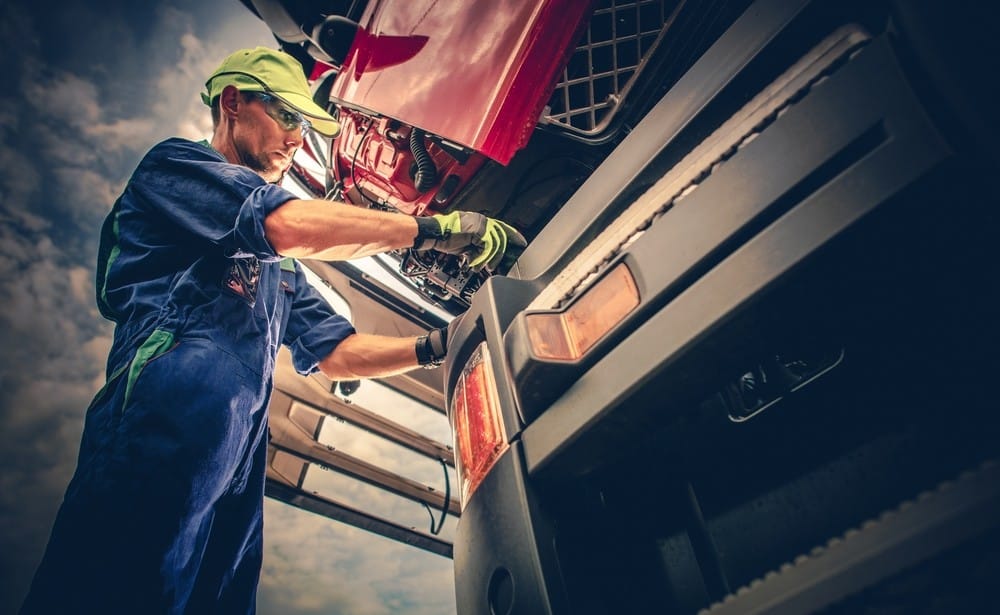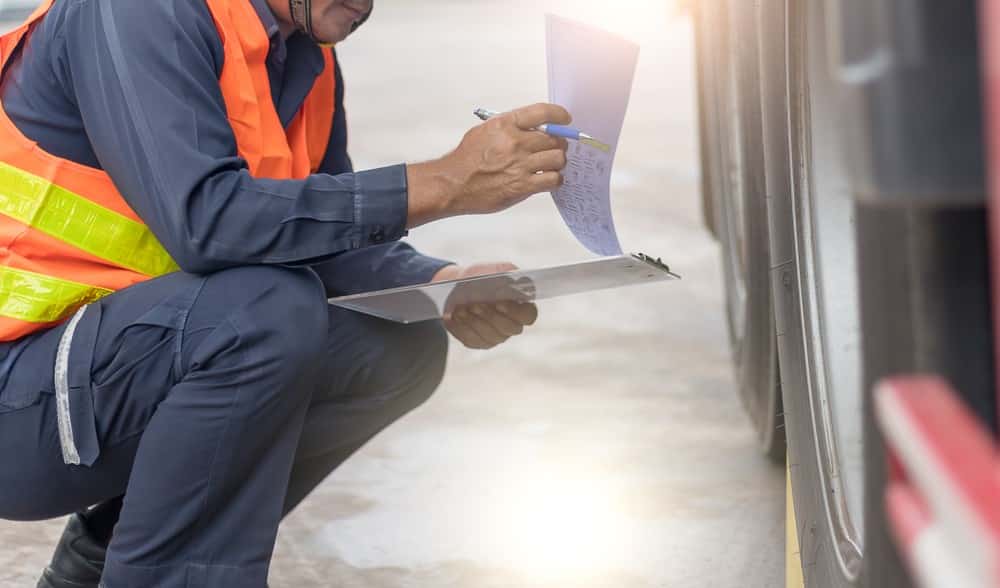Why is truck preventive maintenance important? As anyone in the trucking business knows, having any sort of issue with your truck, equipment security, flat bedding, etc. can set you back quite a bit. More than likely you are on a tight schedule, and if a maintenance problem comes up, even if it doesn’t take too long to fix, it will still put you behind your schedule. This can throw the rest of your route off as well. The only way to prevent this from happening is by doing preventative maintenance.
Preventative maintenance is something that all truck drivers should be aware of and put to use. As a trucker, you should always put time into maintaining your truck and equipment, especially before a problem arises. Preventative maintenance is a great way to keep your truck and equipment up to par and going strong. No one wants to be put behind schedule because of costly, frustrating repairs. So do yourself a favor and take a look at the benefits of preventative truck maintenance, as well as some tips on keeping everything in tip top shape for your trips.
Read Also: Why is Truck Driving a Dangerous Job?
What are the benefits of truck preventive maintenance?
As you have probably already deduced, maintaining your truck, securement equipment, chains, winches, straps, and trailer can save you a big headache, a lot of money, and time wasted. But let’s take a look at the specific benefits of preventative maintenance for truck drivers.
- You can get better fuel mileage. Yes, preventative maintenance can affect your fuel mileage. According to On-Site Fleet Services, regular preventative maintenance checkups grease moveable joints, pivots, and other components which keeps them from wearing out and, in turn, saving on fuel. This preventative maintenance can also detect and prevent other fuel-stealing issues such as dirty air filters, improperly inflated tires, improperly adjusted brakes, clogged fuel filters, clogged radiators, and more. By checking all of these areas, you will save a ton on fuel.
- You will reduce the risk of a breakdown. This may seem like an obvious benefit, but you would be surprised at the amount of breakdowns that are caused because the driver did not take these preventative measures. Truckers usually run on a tight schedule, so a breakdown could be a very big setback that you can’t afford. Plus, it’s a pain to deal with a breakdown.
- You can lower the overall maintenance costs. By choosing preventative maintenance, you are essentially lowering the cost of maintenance if something goes wrong, something breaks, or something needs to be repaired. The cost of having your truck thoroughly checked before a trip is probably much less than the cost of repairing a major issue caused by lack of awareness and neglect to do a thorough checkup. Therefore, it is well worth the extra time and a little extra money to have your truck checked out before hitting the road. You will end up saving a lot of money in the long run.
- You will save time. Again, we will reiterate that by taking the time to do preventative maintenance on your truck, you are saving a lot of time and frustration in the long run. Preventative maintenance on your truck, securement equipment, winches, straps, and trailer can mean the difference between an extra hour and an extra few days. Ensuring that everything is in working order and ready to go for your trip is vital to maintaining your safety, the safety of the truck, and whatever you are hauling.
As you can see, you should always take preventive measures before setting out on a trip. Your safety and job could depend on it.

Truck preventive maintenance is not hard and is a great way to ensure that your truck and cargo are safe and secure. Now, here is a list of some of the top truck preventive maintenance points that you should be sure to hit before heading out.
- Check fluid levels. Brake fluid, oil, coolant, transmission fluid, etc. Check it all! Because running out of any of these fluids can be extremely detrimental to your truck and can be very expensive to take care of.
- Check all securement equipment. It is imperative to ensure that all cargo is securely fastened and will arrive at its destination unharmed. That being said, checking all of the equipment used to secure any cargo is necessary to ensure that you, your product, and your job are all safe and sound. This includes things such as chains, winches, straps, and the trailer itself.
- Inspect the securement tie-downs. You will also need to check all tie-downs for tears, weakened parts, knots and damage. Make sure all components are in working order and will not become lose during transit. You should also make sure to oil the binders to help prevent seizing, and properly roll up any tarps to help prevent tears.
- Check the tire pressure. This is crucial for any driver. Always check your tire pressure before leaving for your trip. It can be extremely dangerous to drive on low tire pressure or too much tire pressure. Your tires should all be at just the right amount of pressure to ensure a safe journey. Also, uneven tire wear can lead to problems with alignment or suspension which will be a costly fix.
- Inspect your brakes. For obvious reasons, this should always be done when heading out on the road. When you are carrying a full load, you want to make sure that you are able to stop safely.
- Inspect your gearbox and clutch. Because you carry around heavy loads and have a high-torque engine, your gearbox and clutch must work very hard. Inspecting each of these can save you and your truck a lot of damage and grief.
Read Also: Safe Drivers Week
Remember, the above are only a few suggestions of things to run a preventative maintenance checkup on before hitting the road. Truck preventive maintenance is an important and necessary part of your job as a trucker. Whether you do the inspection yourself or allow another professional to help, make sure that everything is checked thoroughly and properly and that anything that needs to be adjusted is adjusted right then.
By using preventive maintenance and following the measures discussed in this article, you will be able to prevent the occurrence of larger issues down the road. Keeping your tuck and all equipment in great shape will also help you save a lot of money in the future. Save yourself a lot of headache, as well as ensure your safety and the safety of the loads you are shipping. Use your best judgement and be safe out there.
